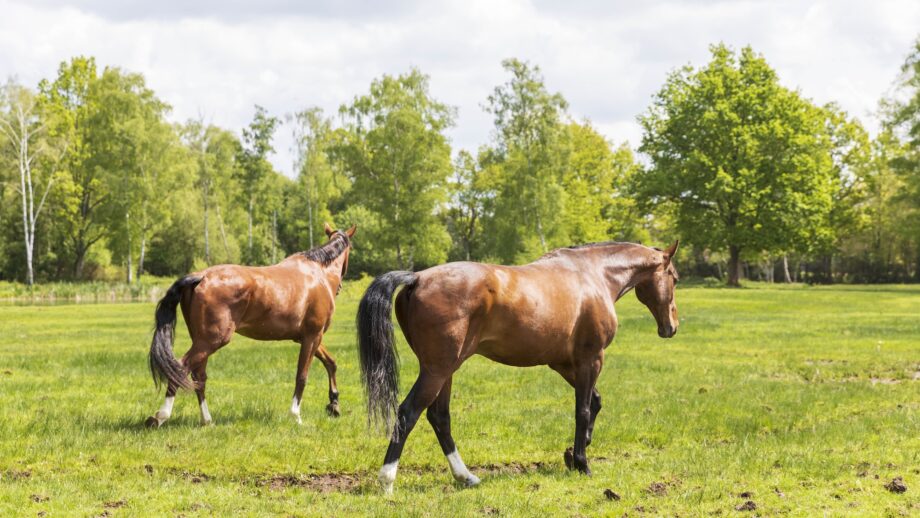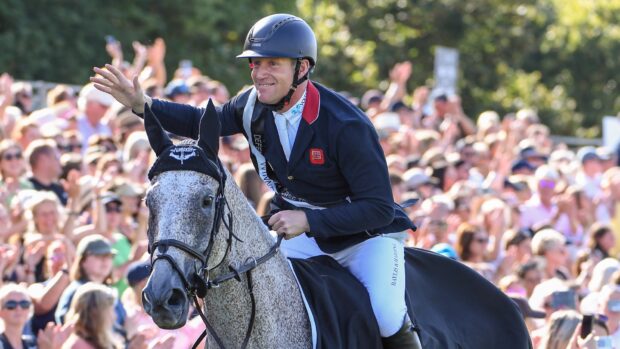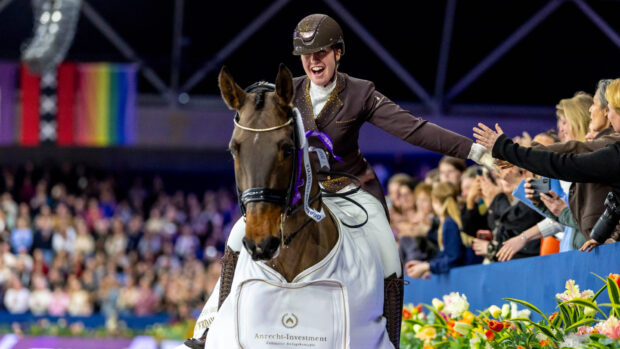Tools aimed at changing human behaviour could mean better lives for our horses – if the sector unites behind them.
Community interest company Human Behaviour Change for Life (HBCL) has created the toolkits for the RSPCA as part of its ongoing Horse Sense project. The first phase of this was research, which found that although the issues behind the original “horse crisis” had eased, the current crisis is that “most equines in England and Wales are not having their welfare needs fully met”.
The research found that lack of owner experience is a major barrier to good welfare, as is lack of turnout; the next stages of the project are about trying to improve the situation.
“We get so much from horses,” RSPCA senior scientific manager for equines Mark Kennedy told H&H. “We want that to continue, we want people to have fun with horses. But in return, it’s only right we make sure that those horses have good lives with us.”
In a webinar on 17 September, Dr Kennedy and representatives of HBCL talked through the research and the next steps.
HBCL co-founder Suzanne Rogers explained that as part of the research, the team spoke to varied focus groups.
“Everyone we talked to provided lots of suggestions, recommendations and ideas for what could be done to make things better for horses,” she said. The recommendations covered issues such as education and training and collaboration, not just between welfare organisations and the wider sectorwell , but with commercial companies to address gaps between available products for horses, and those from which horses benefit.
“If horses could order from a horse catalogue, what would they choose?” she added. “We thought, maybe not a huge amount. Societal approaches is another big theme; there were recommendations about recognition of the changing role of the horse in society. Before outward-facing activities to address those harmful societal norms can be considered, before we look outward, we felt the sector needs to look inward, to actively pledge to adopt certain actions ourselves.”
Harmful practices
She said all in the industry should adopt policies that acknowledge horses as sentient beings and referred to as such.
“There were a lot of suggestions about it being logical for the sector to work on a multi-stakeholder campaign to address the fact a lot of harmful practices are completely normal and accepted in the horse world,” she said. “There are lots of examples and recommendations; all those things we think of as normal in horse keeping, but really are harming or not safeguarding their welfare.
“So, whoever you are, whoever you represent, have a look at the [Horse Sense] report as there will be something there for you.”
Key in phase two, starting the change, is improving owner skills, which is the aim of the behaviour change toolkits. The first level is a one-page document setting out what horses really need for a good life, and challenging the user to make one change.
Not “educating” owners
Dr Kennedy said the idea is not to “educate” owners, as few owners feel they need education, but to encourage people not only to change that one thing, and more, but to start looking at horse welfare differently. The document could be displayed at livery yards, and one idea is to have an online wall on which people can post their pledges to change.
“One principle of behaviour change is, you make the change as easy as possible,” he said. “A good example is [running programme] Couch to 5k; it separates things into bite-size chunks to make it easy to change.”
The level two tool is more extensive and designed for yards, and perhaps vets and colleges, with the same idea of pledging change. This also includes plans for barriers to change, such as late nights and bad weather, and support for such incidents.
“It starts with making one change,” Dr Kennedy said. “But the hope is that by the time they get to the end of that toolkit, they will be thinking ‘What else can I change?’
“What governs animal welfare is what people do, so it’s people we need to work with.”
Work in progress
The basic tools are available, and have been trialled and modified, but they are a work in progress. Dr Kennedy said the hope is to have an app, and to get people talking about and using them.
“It’s absolutely not a case of ‘The tools are out there; deal with them, we’re moving on’,” he said. “That’s not horse sense; this project is a long-term thing.”
Dr Kennedy said the toolkits will be “embedded in” the RSPCA; at its centres and in advice given to struggling owners, and work is ongoing on training and support related to them. The aim will then be to share them with other organisations and stakeholders.
“These tools will hopefully drive a real paradigm shift in how we work with horses, help us really strengthen our relationship with them and ensure they have a good life,” he said.
“Let’s go from a situation of dealing with a crisis to taking preventative action to make sure these situations don’t develop in the first place. This research, these tools, are the very first steps in this collaborative mission. We all want to work together to build a good life for horses; we the RSPCA can’t do it on our own. Human Behaviour Change for Life can’t do it on their own. We all need to work together to drive a good life for horses.”
To find out more about the toolkits, email cad@rspca.org.uk
- To stay up to date with all the breaking news from major shows throughout 2025, subscribe to the Horse & Hound website
You may also be interested in:

Lack of turnout and owner knowledge mean ‘most horses’ do not get what they need

Better education – not exams – for horse owners could be key to better welfare

‘Well intentioned but incompetent care’ means equines left to suffer

Subscribe to Horse & Hound magazine today – and enjoy unlimited website access all year round




